// Background
My pieces so far on this blog have been about movies. I love movies and shows and I feel comfortable with my viewing repertoire to comment on them.
An avid gamer, I am not. As a first generation immigrant to Canada, I wasn’t even fully aware of video games. My first exposure was in grade 3 when a classmate brought their GameBoy Advance SP to school and was playing Pokémon Emerald. I didn’t know what was happening but everyone was interested and that was cool enough for me. That classmate later offered to sell me the GameBoy and the game for $50. What a deal I thought, having no concept of money and knowing for sure my parents wouldn’t be okay with it. So I did the logical thing and stole money out of my dad’s wallet and bought it from the classmate the next day.
Long story short: It didn’t end well and both my classmate and I were reprimanded and the transaction was reversed in an embarrassing encounter.
I did eventually get my own GameBoy though. My parents would buy me one game a year and if I was lucky, we could find a stash at some garage sale for 10 bucks. Sure I wanted to play video games, but my parents weren’t in a position to be buying me them more often than they did, and if I’m being honest, I didn’t know what I was really missing out on anyway. I could just endlessly play my copy of Pokémon Emerald and be happy.
After those days, I switched to reading books to pass my time until eventually in my teenage years, I started watching movies and shows as my preferred media consumption. Video games were but a blip in my life until I was in my early 20’s.
All that to say, I don’t have a deep background of playing video games in any way. In fact, even since I got a PlayStation and started playing more games, I can’t say I play more than a handful of games or two a year. I don’t generally explore too many genres and stay within my preferences, which more or less boil down to single player narrative-focused RPGs. It’s not that I don’t play other things – I’ve sunk countless hours in Civilization V and VI, my game of the year for 2021 was Inscryption, and I can never say no to playing sports games like FIFA or NHL. But for the most part, I’d point to games like Red Dead Redemption 2, the new God of War games, and The Witcher 3 to pinpoint “my type of game.”
At the end of 2020, there was a rush to try to buy PlayStation 5 consoles with stocks running out in seconds. Through some combination of fate and the state of the world, my attempt to buy a gaming console led to me making a whole new group of friends with much of our conversations revolving around gaming.
Although I didn’t have much of a background in gaming, I am a quick learner when steeping myself into a new interest. I’m the type of person who researches and learns everything there is to learn about something before I make a purchase or commitment. I absorbed a lot of information from this new group of friends and also just by watching things about gaming and following the news. At this point, I feel like I have a decent pulse on the gaming industry.
//Intro
No matter the interest, people can’t help but pick a side. Whether it’s which console is best, which type of game is best – hell, people will even side with billion dollar companies for some reason. Of course, what constitutes the best games is a common point of conflict among gamers. This battle is fought on so many levels that people will go down the rabbit hole to fight about niche criteria in order to justify that their favourite game is in fact objectively the best game. These conversations can start from copies sold to review scores to actually reviewers don’t know anything, you should look at the Steam reviews because gamers are the best gauge, but then if the game is low budget, they’ll then say well you can’t judge it on that, and so on and so forth, ad infinitum. If you can find a way to deny the fundamentals of judging a thing, it absolves you of having to prove anything objectively in the first place.
Now, I’m not targeting GamersTM alone with this. This phenomenon exists in every sort of fandom from media to sports to politics to which brands you might like for any type of consumption. Perhaps it’s just human nature to display our insecurities by blindly defending it against others. None of our decisions can possibly be less than optimal if we find a way to show that every choice of ours is actually the best choice, and if you disagree, you are factually incorrect.
So yeah, I guess it’s my turn now.
I have always subscribed to the philosophy of recusing myself from “best game” conversations and just focus on what my personal favourites are. I could never really decide on what criterion I would use to base myself off of. The main defaults seem to be either review scores or sales. But when perusing (read: doom scrolling) Twitter over the last year, I think I’ve realized that perhaps something else should enter the conversation to truly gauge the impact of a video game on its players: continued player engagement.
It’s something that’s hard to quantify, which is why I’m not going to posit this as the metric to follow or anything, but it’s nonetheless something you can notice over time. If you try to just search for mentions of the game, it might not give the right idea because of the communal phenomenon known as “dunking”, which could bias the mentions of something. Instead, this is altogether an anecdotal general trend to see over time.
// Let’s Chat Stats
I’m going to take 4 games from 2023 and run through some stats to see how they match up on different metrics. The 4 games I’ve chosen are the following (arranged by release date):
- Hogwarts Legacy
- The Legend of Zelda: Tears of the Kingdom
- Baldur’s Gate 3
- Starfield
To answer why I’ve chosen these 4, the main reason is because I felt like it. Obviously though, there are more reasons: these were games with big impacts in 2023 that all occupy a similar space in terms of genre of game and target audience. They are open world RPGs with definite differences but all with fervent fan following for different reasons. There are a few games that could’ve entered the fray of this conversation such as Final Fantasy XVI, Marvel’s Spider-Man 2 and Star Wars Jedi: Survivor, but in my opinion these games, although great in their own ways, came and went without much fanfare outside of their release window. The graph below shows the search trends of the 3 games compared to just Baldur’s Gate 3 and they just don’t make a dent. There’ll be one comparing the 4 games I did choose later (that’s called a tease, but you could also just scroll down and look at it now I GUESS).
The first instinct anyone has to compare popularity is sales. But in the world of subscription services, console exclusives, and other limitations, that doesn’t really make for a fair comparison. First, let’s look at their sales numbers for 2023:
| Title | “Sales” in millions of units | “Sales” adjusted for release date |
|---|---|---|
| Hogwarts Legacy | 22 | 24 |
| Tears of the Kingdom | 20.3 | 30.45 |
| Starfield | 13 | 39 |
| Baldur’s Gate 3 | 10 | 24 |
The calculation for the right column is just taking the sales over the amount of months the games were available and applying it over 12 full months to make it a fairer comparison since Hogwarts Legacy was out for 11 months while Starfield was only out for 4.
You can see in the footnotes that these aren’t exact numbers that we can compare directly. And that’s for more reasons than just the reporting of the figures. Just for posterity, let’s lay out the various reasons that these numbers are hazy at best in terms of comparison.
- Hogwarts Legacy is the only title among the four to be released across all platforms.
- Tears of the Kingdom is a Nintendo Switch console exclusive title.
- Starfield was available on release on GamePass for those with a subscription.
- Starfield was exclusive to Xbox Series consoles and PC.
- Baldur’s Gate 3 had already amassed about 2.5 million sales in early access.
- Baldur’s Gate 3 launched on PC first, a month later on PS5 and then a further 3 months later on Xbox Series consoles (without feature parity).
The caveats are important, but they don’t necessarily nullify the numbers either. Whether you look at it from a commercial aspect or a creative aspect, more people playing your game is a legitimate metric of success. But “people playing your game” has different meanings, as we’ll discuss later.
Since I earlier disqualified certain games from being part of this case study, I figure I should show you the general interest around the four games I did choose on the internet.
Each game peaked of course at release with Hogwarts Legacy hitting the highest high and the other 3 having similar peaks. Another thing I’ll point out from this since it’s hard to tell on the graph is how long it was talked about before more or less disappearing (I’ve set that as the first time the game dips below 10 on the Google interest scale). Hogwarts Legacy remained in the conversation for 2 months post-release, Tears of the Kingdom was discussed for about 3 months, Starfield was talked about for a little over a month while Baldur’s Gate 3 has yet to hit 10 on the interest scale.
This graph brings about an important question of peak vs longevity. Is it enough that people tried your game or is there more value in staying in the public consciousness? That would be an interesting thing to explore right? I hope you said yes because this is what the article will be getting at.
// The Mirage of Objectivity
Feelings are for losers, as the adage goes. We can’t just rely on feelings to decide whether something is good. Only a fool would use such a thing as personal emotional resonance to determine what a good piece of media is to them. No, we must submit to our partisan nature and choose to defend what we like to objective metrics that we selectively pick out to support our preferred narrative.
That’s me being facetious.
A lot of us have become obsessed with using things like Rotten Tomatoes scores or Metacritic review scores to gauge which games are good and which games are bad. We’ve almost let our personal tastes be overrun by the opinions of the masses or those who have made it their job to judge the quality of games. My intention is not to disparage these sites and reviewers. With the sheer volume of content from every medium flooding us, we have to find ways to sift through the endless grains of sand. However, these aggregator sites have also led to more of what we are fed to be cookie cutter products engineered to hit that 7 out of 10 “good” label (looking at you, Ubisoft).
I personally find that review scores for games have an added dimension of value that movie or TV show reviews lack: functionality. A game that’s busted and just doesn’t play well will bring down review scores and that has a tangible impact on the consumer when making the decision to purchase or not. The value proposition is not the same for a movie or a TV show where almost every evaluation facet is subjective. Yes, we can for the most part gauge what a beautiful shot is or if something is coherent in a story. But we don’t fear that a lower rated movie will have frames dropping in its runtime or that a TV show keeps turning off mid-show.
In that sense, there is a legitimate value to reviews for video games that is less subjective than for some other media.
But once we put aside that aspect and agree that the games reach an acceptable level of functionality, what are we left with to compare games? Are review scores really all that reflective? A competently made game with tired mechanics and overlong narrative that looks good is likely to garner a good review as is a creative swing that may not fully hit its mark and is lacking in some components but weaves a great tale and succeeds on a creative level. What makes a game an 8/10 rather than a 7/10? To what extent are our inherent biases towards what we like whether that’s genre, gameplay mechanics, graphics preference, etc., embedded in these review scores? It’s really hard to parse out these aspects as is the case for most reviews for media. Sure, we can confidently say the game that received sub 50% ratings across the board is bad, but within a certain range, the objectivity of aggregation of subjective scores falls apart.
And that’s when we resort to looking at sales. Sales are straightforward and there is no subjectivity. This many players bought this game and therefore this game must be great if that many people spent their hard earned money on it, therefore the highest selling game of a year must be the best one objectively. Case closed, let’s go home, you read 2,300 words so far to get that conclusion.
Right?
Not that I think that was ever really true, but it is definitely less true today than it ever has been before.
The table I introduced earlier that compared the sales numbers had some caveats that deserve to be discussed further. I’ll drop it here again so you don’t have to scroll back up to see it.
| Title | “Sales” in millions of units | “Sales” adjusted for release date |
|---|---|---|
| Hogwarts Legacy | 22 | 24 |
| Tears of the Kingdom | 20.3 | 30.45 |
| Starfield | 13 | 39 |
| Baldur’s Gate 3 | 10 | 24 |
I put sales in quotes but didn’t actually explain it at the time. For Hogwarts Legacy, Tears of the Kingdom, and Baldur’s Gate 3, those are sales. But for Starfield, that’s players who have played the game. For the former three games, sales does equal players playing barring split-screen co-op or people sharing consoles. However, for Starfield, a game that was released on GamePass day 1, people didn’t have to shell out more money to play it if they already had the subscription service. That’s not a negligible aspect and contributes heavily to the game being the most played game adjusted for release date last year.
Of course anyone with a subscription will at least fire up and drop a couple of hours into the first Bethesda new IP in a quarter century when it’s available for free on their subscription service compared to shelling out a cool $100 (that’s Canadian dollars) to play any of the other games on release. Sure it tops the release date adjusted “sales” but to call it sales would be disingenuous. Whoever made that table should really use a different word (yes I made the table and no I’m not changing it because I’m making a point).
Let’s look at the other three then. Hogwarts Legacy, as mentioned before, is the only one of the four to release on all platforms yet ties for last in adjusted sales despite on the surface selling the most last year, mainly due to its release date positioning as it had a couple of months headstart on the year compared to the next release. Let us not forget the brand value of Harry Potter and the role that plays in sales for this type of game regardless of opinions of many on its author. I’d go as far as to say these sales numbers are lackluster when taking everything into account even though it was spun as being the most successful game of the year.
In comparison, Tears of the Kingdom released on but the lone platform and famously doesn’t go on sale yet still managed to top 30 million adjusted units sold. No notes, that to me is the clear winner here if we were to rely on this stat.
Baldur’s Gate 3 released on PC and then PS5 before getting an Xbox release near the end of the year and managed to match Hogwarts Legacy. An important aspect to keep in mind also when judging Baldur’s Gate 3 is that despite its modernizations in terms of graphical fidelity and cutscenes, it is a CRPG through and through which has historically always had less mass appeal than the more action RPGs the other 3 fall under. It is a true tour de force for Baldur’s Gate 3 to even be in this conversation, much less being a true competitor in just sheer sales.
I covered all that to show you how even within this objective statistic that is lauded at the end of every year and of course is a coveted metric for businesses, the complexity of the gaming industry landscape has removed much of its comparative value.
It really makes you think what then IS an objective statistic? What can we then look at to say that this game was the most successful of that year?
// The Subjective Arts
In the last year, my Twitter timeline has filled up with a lot of art. As I’ve seen more and more art, it really dawned on me how much impact a property has to have on people for them to dedicate not just the time and money to consume that piece of media, but then devote more time and effort in creating art based on it. Something has to really make a mark on people to have that kind of effect.
As I appreciated more of this art, it really made me think how the volume of fan engagement at the end of the day is the most reflective way to see the success of media in terms of the impact it makes on people. At the end of the day, why should you or I care about the money a game makes a certain multi-million dollar company? Sure, maybe that means if we really liked their work, it can result in them making more, but outside of that, there’s little value to the consumer that others have also consumed it. Well… unless that shared consumption of the product results in a community.
Now I couldn’t just find how much art or memes people were making about each game and compare that. But I figured well let’s see how much people talked about each game and more importantly, for how long. The second part is important because some games came with controversy (Hogwarts Legacy) or just huge pedigree (Starfield), so of course those would have huge spikes in engagement at release, but the true sign of their impact would be in my opinion the longevity of their presence in discourse. I will report the graph from before as a refresher.
Before we continue, in case you’re wondering why I posted the tables and graphs before in the first place and then now I’m reposting them to discuss them, it’s because I wanted you to see them unadulterated first to make up your own mind on how you interpret them before I corrupted them with my interpretation.
As mentioned before, Hogwarts Legacy has the highest peak in searches, which makes sense given the brand as well as the controversies surrounding the author. But what I think stands out the most is that Baldur’s Gate 3 not only had the second highest peak but that it has stayed in the public consciousness even now. Of course the big bump in December when it won Game of the Year helps with that but even prior or thereafter, it has seen dips in the same vicinity of the other games.
To me this shows how strong of a community the game has been able to build through the impact of the game itself rather than just being a blip or a month or two at its release and then being forgotten in favour of a different game. There could be many reasons for this of course, but this article is not a breakdown of Baldur’s Gate 3 as a game.
I figured that the best way to see the community aspect of each of these games would be to see how many members are in each subreddit.
| Game Title | Subreddit Member Count |
| Hogwarts Legacy | 300k |
| Tears of the Kingdom | 713k |
| Starfield | 890k |
| Baldur’s Gate 3 | 1.9M |
The disparity in these numbers from lowest to highest is much starker than I was anticipating even though this was the general distribution I expected. In terms of community engagement and fostering conversation among players, Baldur’s Gate 3 far and away takes the crown despite being the lowest selling game of the bunch.
Of course, this is far from an objective way to gauge anything, but I think the feeling you create in people with your media is indeed a big success. And the beauty of the subjective win is that it can often translate to an objective victory as well, when you look online to see how many people continue to care about what you made months after they got access to it. The fact that a game in a niche genre was able to garner two million people in its subreddit is an achievement that many of the developers would take over many other “objective” metrics out there.
// Conclusion
As a business, perhaps the engagement aspect means little if it doesn’t translate to sales. However, I personally think if you create something with a lasting impact, that’s a creatively priceless outcome that can’t be measured… Unless you use metrics like Google search results and subreddit member counts, in which case you can measure it just like I did and it is unequivocally the right way to go about it.
More seriously, every one of the metrics discussed in this article has its value in its own way. The best outcome for any game is to combine success in every one of these metrics rather than just one. But from a consumer’s point of view, I think there is more value in knowing that a specific game is able to grab more of the audience’s attention and really bring out emotion in people that manifests itself in engagement through conversation and art and so on. The fact that a game sold more copies but no one cared about it a month later doesn’t fill me with great hopes for my enjoyment of that game.
End of the day, you know yourself best and you already have a way to gauge what you will play and how you view which games are successful or not. But maybe at the end of 2024, when everyone is talking about what the best game of the year is, you’ll think back to this and consider not just sales or what you liked most, but which games made the biggest mark on people that year as a potential evaluation criteria for the best game of the year.



